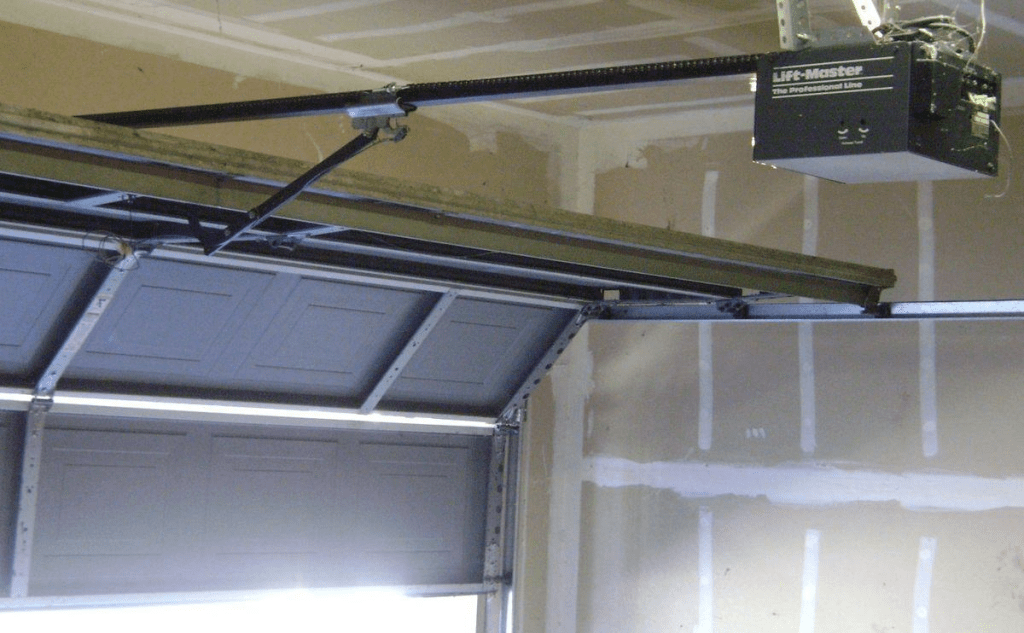A noisy garage door can be more than just an annoyance; it can disrupt your peace and even wake up the entire household. Fortunately, making your garage door quiet is a manageable task. Whether your door is grinding, squeaking, or banging, there are effective ways to minimize the noise. This guide provides tips, solutions, and preventative measures to help you achieve a quieter and more efficient garage door system.

Why Does Your Garage Door Make Noise?
Understanding why your garage door is noisy is the first step to making it quieter. Here are some common causes:
- Worn-Out Rollers: Metal or worn-out rollers can create loud grinding or squeaking sounds.
- Loose Hardware: Nuts, bolts, and other hardware can loosen over time, causing vibrations and noise.
- Unlubricated Parts: Lack of lubrication on moving parts, like hinges and springs, often results in squeaks and grinding sounds.
- Old or Damaged Springs: Springs lose their tension or become damaged, leading to creaks and bangs.
- Track Misalignment: Misaligned tracks can cause rollers to make loud, unpleasant noises.
- Garage Door Opener: Chain-driven or older openers are typically noisier than belt-driven models.
Read too: Mastering Quantum Garage Door Opener Programming: A Comprehensive Guide
How to Make Your Garage Door Quiet
There are several ways to address noise issues with your garage door. Here’s how you can make your garage door quiet and keep it that way.
1. Inspect and Tighten Hardware
Over time, vibration from your garage door can cause nuts, bolts, and screws to loosen. Follow these steps to inspect and tighten them:
- Use a wrench to tighten all visible nuts and bolts.
- Check hinges and brackets for any signs of wear or damage.
- Avoid overtightening, as this can strip the hardware or cause further issues.
2. Lubricate Moving Parts
Lubrication is one of the simplest ways to reduce noise:
- Use a silicone-based spray or garage door lubricant.
- Apply lubricant to rollers, hinges, tracks, springs, and the chain or belt drive.
- Avoid using grease, as it can attract dirt and debris.
3. Replace Worn Rollers
If your door uses metal rollers, consider upgrading to nylon rollers. Nylon rollers are quieter and require less maintenance:
- Check for rollers with cracks or visible wear.
- Hire a professional if you’re unsure how to replace them safely.
4. Adjust or Replace the Opener
Older chain-driven garage door openers are noisier than modern alternatives:
- Consider upgrading to a belt-driven opener, which operates more quietly.
- For existing openers, ensure they are properly mounted and tightened.
5. Check and Adjust the Tracks
Misaligned tracks can cause loud noises:
- Inspect the tracks for dents or bends.
- Use a level to ensure they are properly aligned.
- Loosen the screws holding the tracks, realign them, and retighten.
6. Install Noise Insulation
Insulation can help dampen the sound of your garage door:
- Add a noise-dampening kit to the door.
- Install rubber or foam insulation strips to reduce vibrations.
7. Replace Old Springs
Worn-out or damaged springs are not only noisy but also dangerous:
- Inspect the springs for rust or gaps.
- Always hire a professional to replace springs, as they are under high tension.
Preventative Maintenance for a Quiet Garage Door
Routine maintenance can prevent noise issues before they start. Here are some tips to keep your garage door quiet in the long term:
1. Schedule Regular Inspections
Inspect your garage door every three to six months to catch potential issues early.
2. Keep Tracks Clean
Dirt and debris can cause friction and noise. Clean the tracks regularly with a damp cloth.
3. Test Balance and Alignment
A balanced door reduces stress on the opener and minimizes noise. Disconnect the opener and manually lift the door halfway to check its balance. It should stay in place if balanced properly.
4. Replace Parts as Needed
Don’t delay replacing worn-out parts like springs, rollers, or cables. Doing so can prevent further damage and noise.
Upgrading to a Quieter Garage Door System
If your garage door is old or excessively noisy, upgrading to a new system may be the best solution. Modern garage door systems come with features designed to minimize noise, including:
- Nylon Rollers: Quieter and smoother operation compared to metal rollers.
- Belt-Driven Openers: Use a rubber belt instead of a chain, significantly reducing noise.
- Insulated Doors: Help absorb sound and reduce noise from opening and closing.
When to Call a Professional
While many noise-related issues can be fixed with DIY efforts, some situations require professional help:
- Springs or cables need replacing.
- Tracks are severely misaligned or bent.
- The opener needs major repairs or replacement.
A professional can also perform a comprehensive inspection to identify less obvious causes of noise.
Frequently Asked Questions About Garage Door Quiet Solutions
1. Why is my garage door suddenly noisy?
A sudden increase in noise may indicate loose hardware, worn rollers, or a lack of lubrication.
2. Can I use WD-40 to lubricate my garage door?
WD-40 is not recommended for garage doors as it’s a degreaser. Instead, use a silicone-based lubricant or garage door-specific lubricant.
3. How often should I lubricate my garage door?
Lubricate your garage door’s moving parts every three to six months for optimal performance and noise reduction.
4. Is a belt-driven opener worth the investment?
Yes, belt-driven openers are quieter, smoother, and often last longer than chain-driven models, making them a worthwhile investment.
Conclusion: Achieve a Garage Door Quiet Enough for Peaceful Living
A noisy garage door doesn’t have to disrupt your daily life. By addressing common causes like worn rollers, loose hardware, and unlubricated parts, you can make your garage door quiet and functional. Regular maintenance, upgrades, and professional assistance when needed will ensure your garage door operates smoothly and silently for years to come.
Take the time to implement these solutions and enjoy the peace of a quiet garage door today!



Leave a Reply